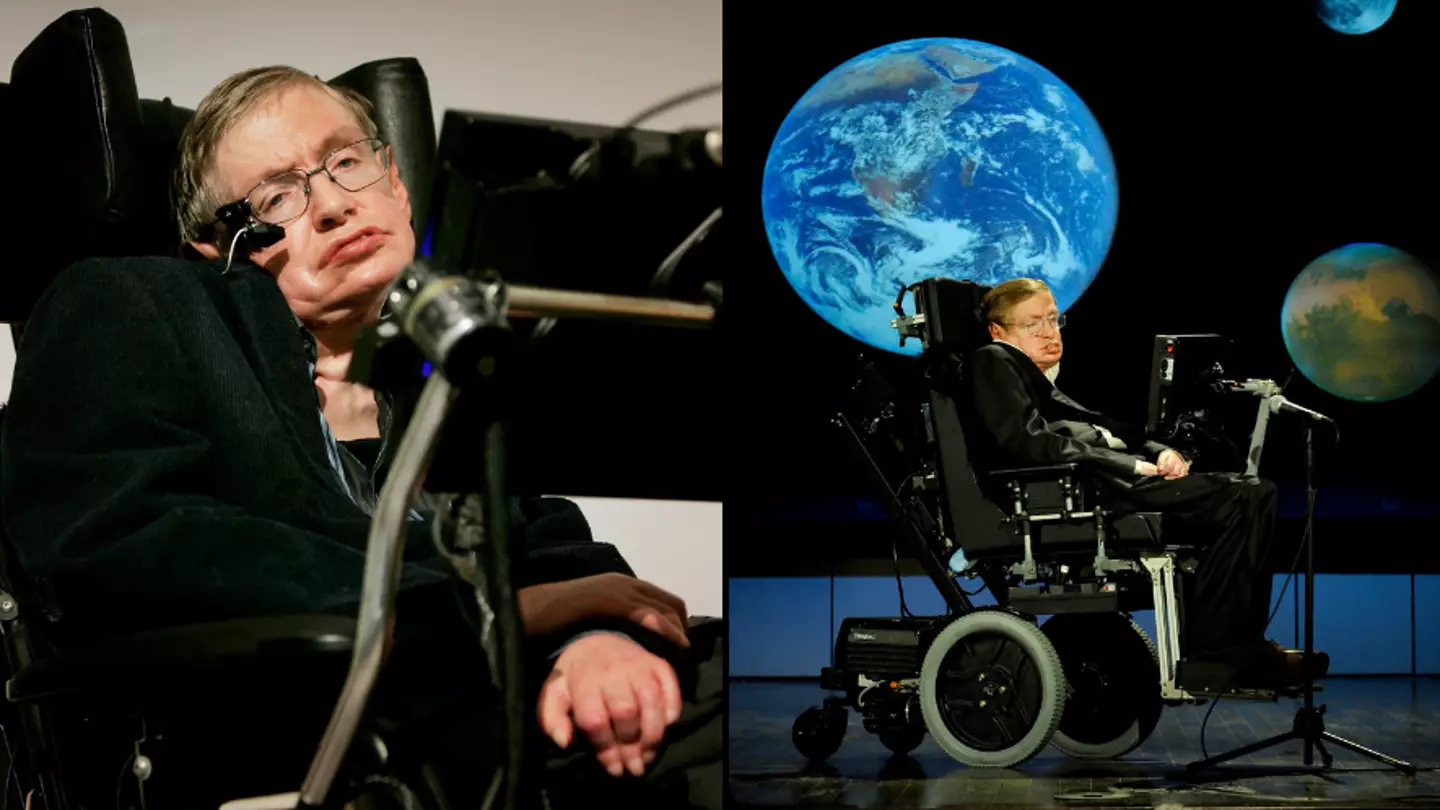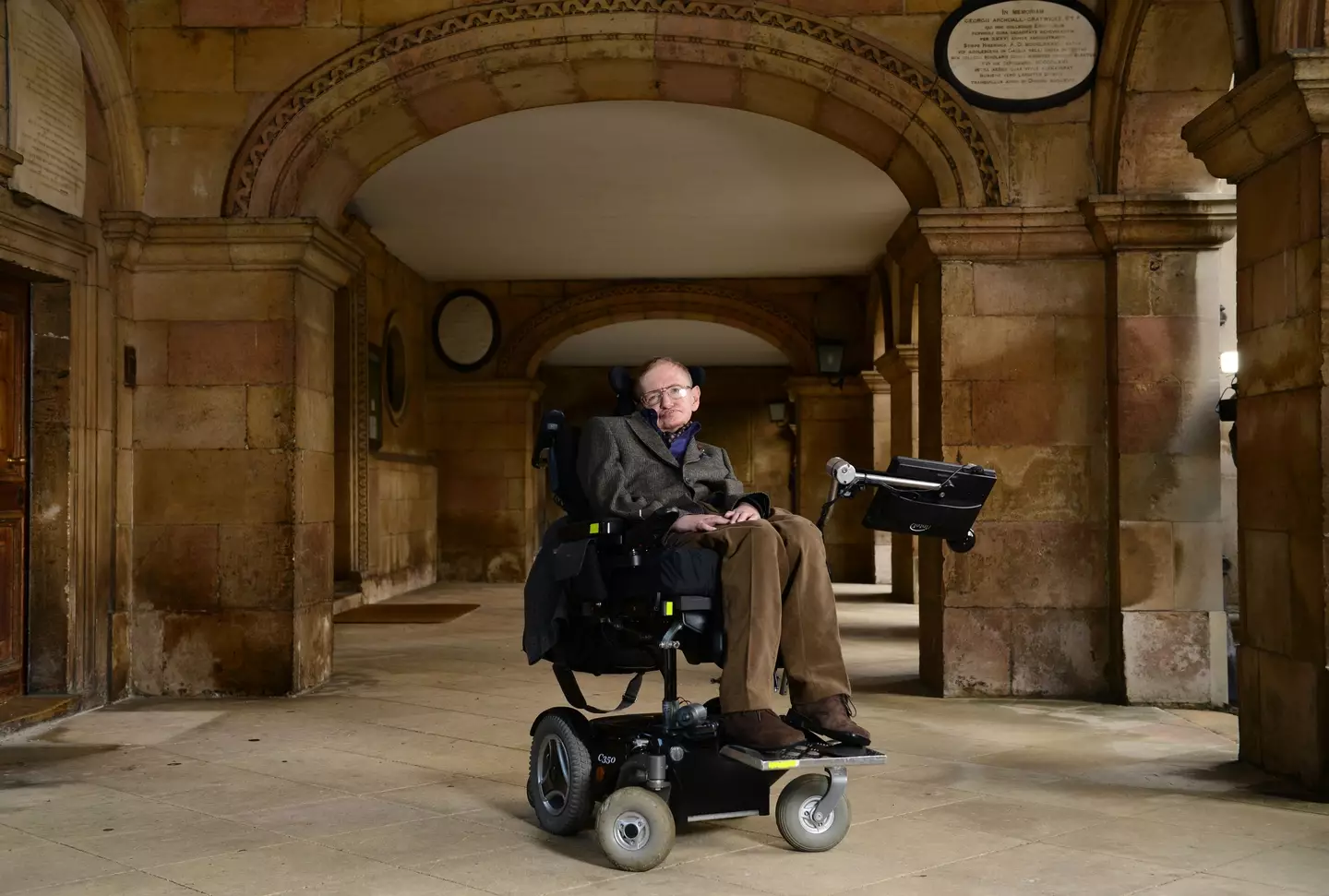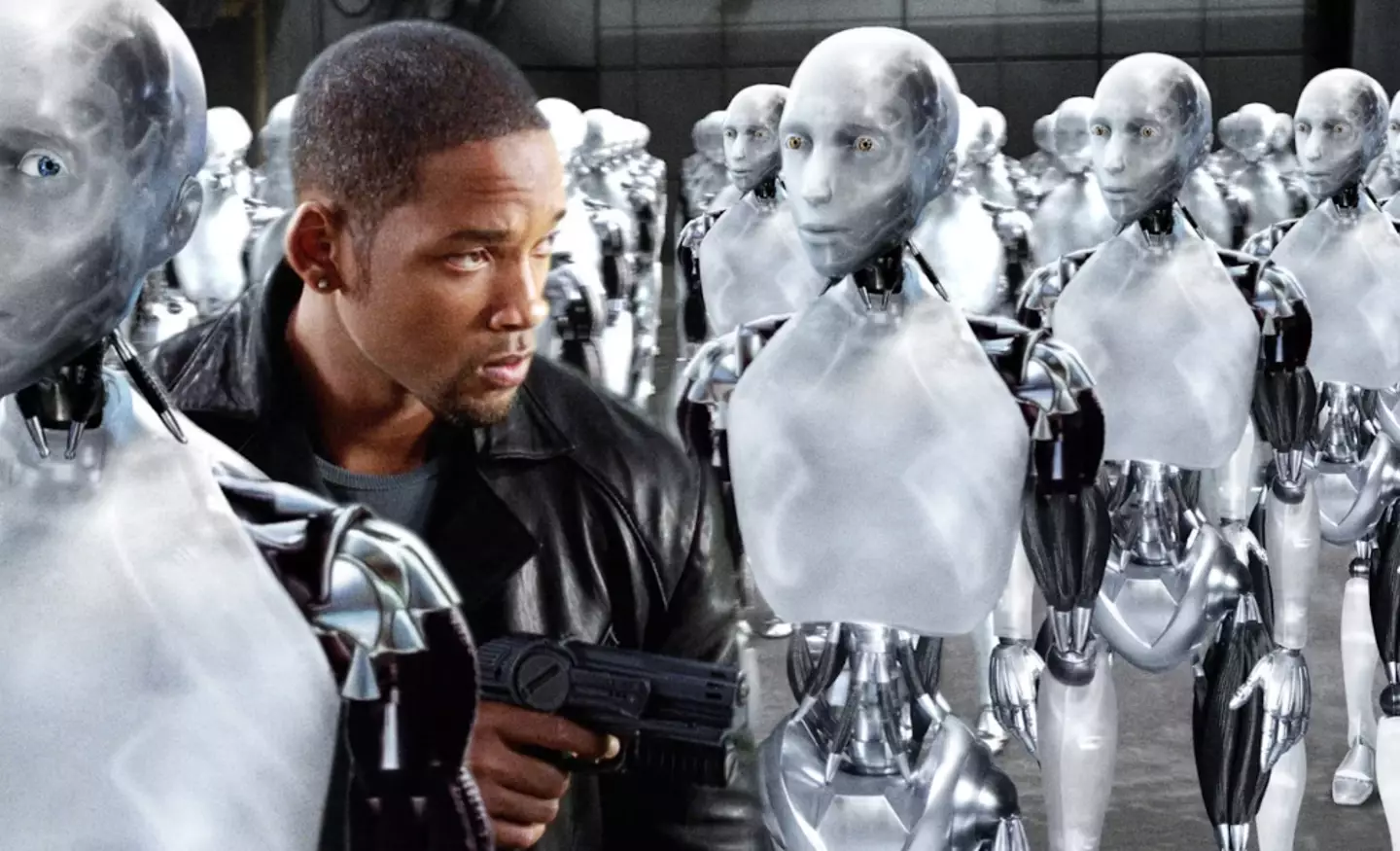
Before he died, Stephen Hawking shared one final warning for humanity.
The professor, who would have turned 83 today (8 January), died back in March 2018 but seemed to have an eerie insight into how things would go after him.
For some people, artificial intelligence (AI) is the best thing since sliced bread, cracking on with tasks they can’t be ar*ed to do themselves or making life a little easier.
But plenty of others worry its rise will turn out like a scene from the film I, Robot and just how would that look for many careers?
Well, Hawking was way ahead and gave the prediction back in 2012 that ‘the development of full artificial intelligence could spell the end of the human race’.

Hawking would’ve turned 83 today. (Karwai Tang/Getty Images)
Yeah, dark as f**k but maybe the physics whizz has a point. At the time of that chat with the BBC, AI as we know it was relatively in its infancy but Hawking could already see the power it might be able to have, especially its ability to surpass human intelligence.
He continued: “It would take off on its own, and re-design itself at an ever-increasing rate.
“Humans, who are limited by slow biological evolution, couldn’t compete, and would be superseded.”
Then, in 2015, the Brit was one of 100 experts to sign an open letter to the United Nations warning of the dangers of unchecked AI development, joined by Elon Musk in a bid to create stringent rules for AI.
Just one year before his death, Hawking then warned mankind about the dangers of allowing AI to grow further during an interview with Wired magazine.
He said: “I fear AI may replace humans altogether.”

No thanks. (20th Century Studios)
I mean, if someone like him is telling us AI is going to bring the end of times, we should probably listen.
At one point, Hawking even suggested we could become as dumb as rocks compared to machines if we don’t stay sharp.
Published a few months after he died, he’d wrote in his book Brief Answers to the Big Questions: “We may face an intelligence explosion that ultimately results in machines whose intelligence exceeds ours by more than ours exceeds that of snails.
“It’s tempting to dismiss the notion of highly intelligent machines as mere science fiction, but this would be a mistake – and potentially our worst mistake ever.”
And if we look at the digital era we’re currently living in, AI has exploded at a rapid pace.
Not only can we now harness the use of OpenAI to create full-length educational articles, news pieces and scripts for films, it’s continuously learning by the information we feed it.
What will it be like in 20 years after being fed even more knowledge and data?
Featured Image Credit: Bruno Vincent/Getty Images/Paul. E. Alers/NASA via Getty Images


